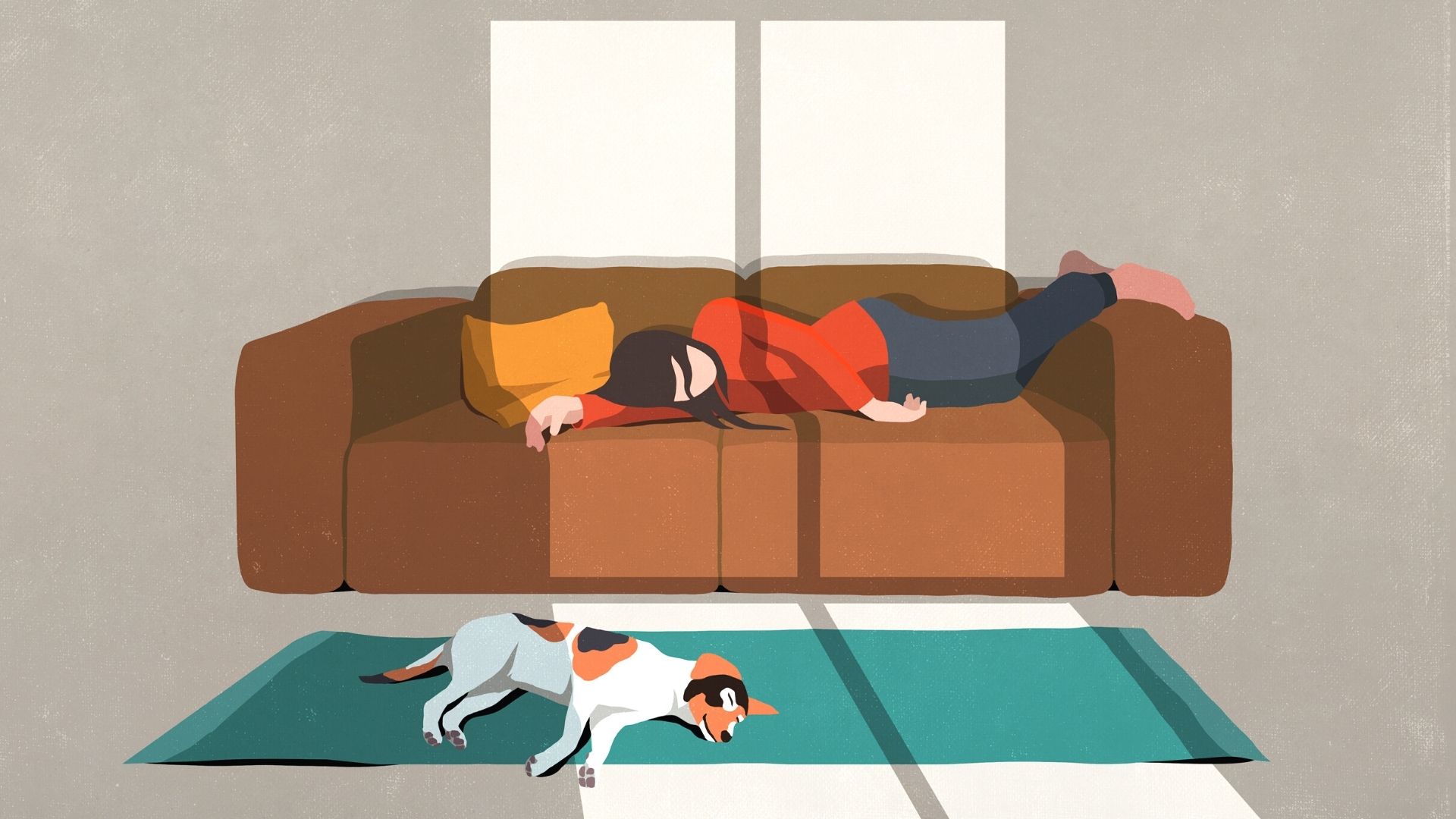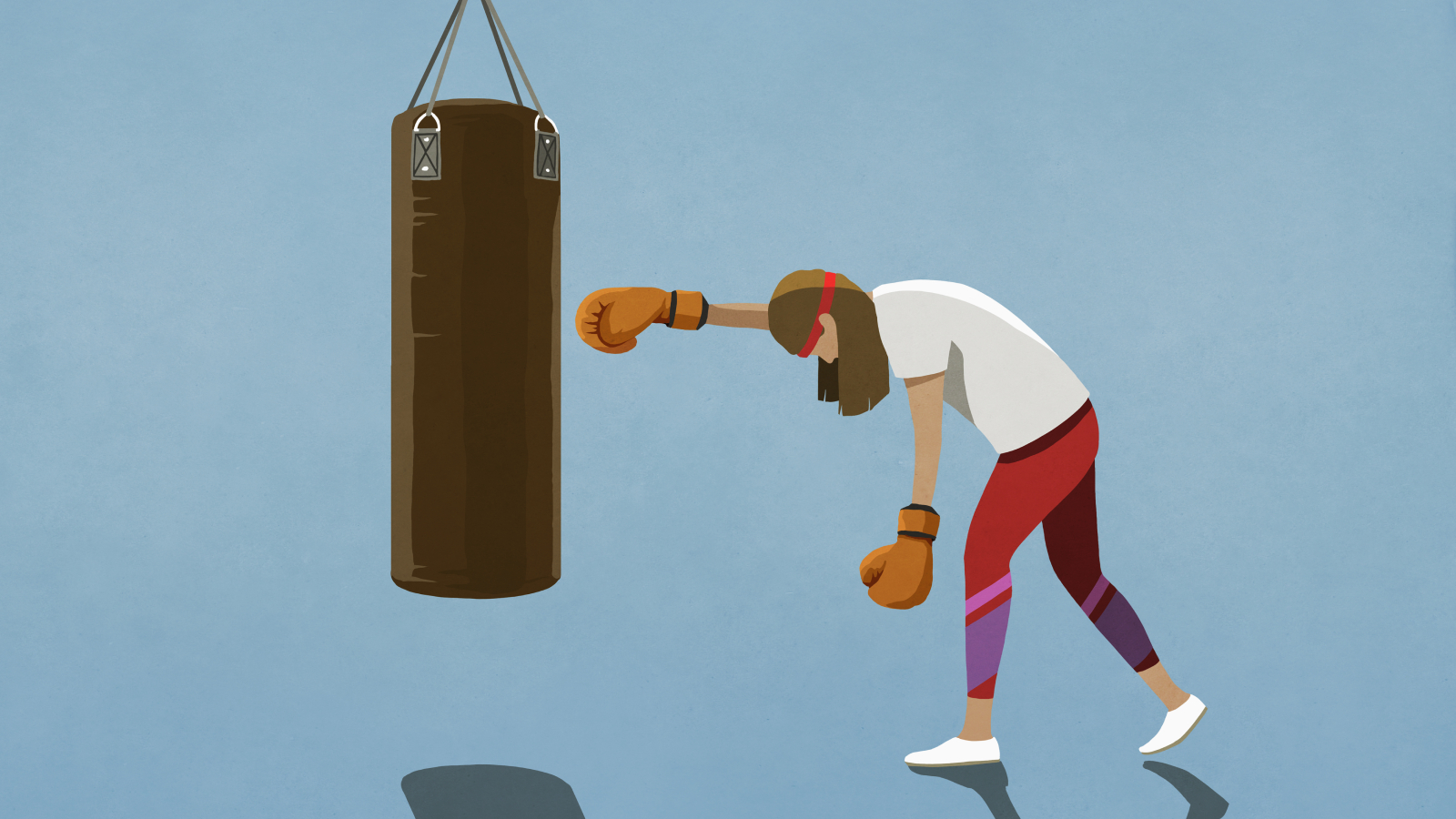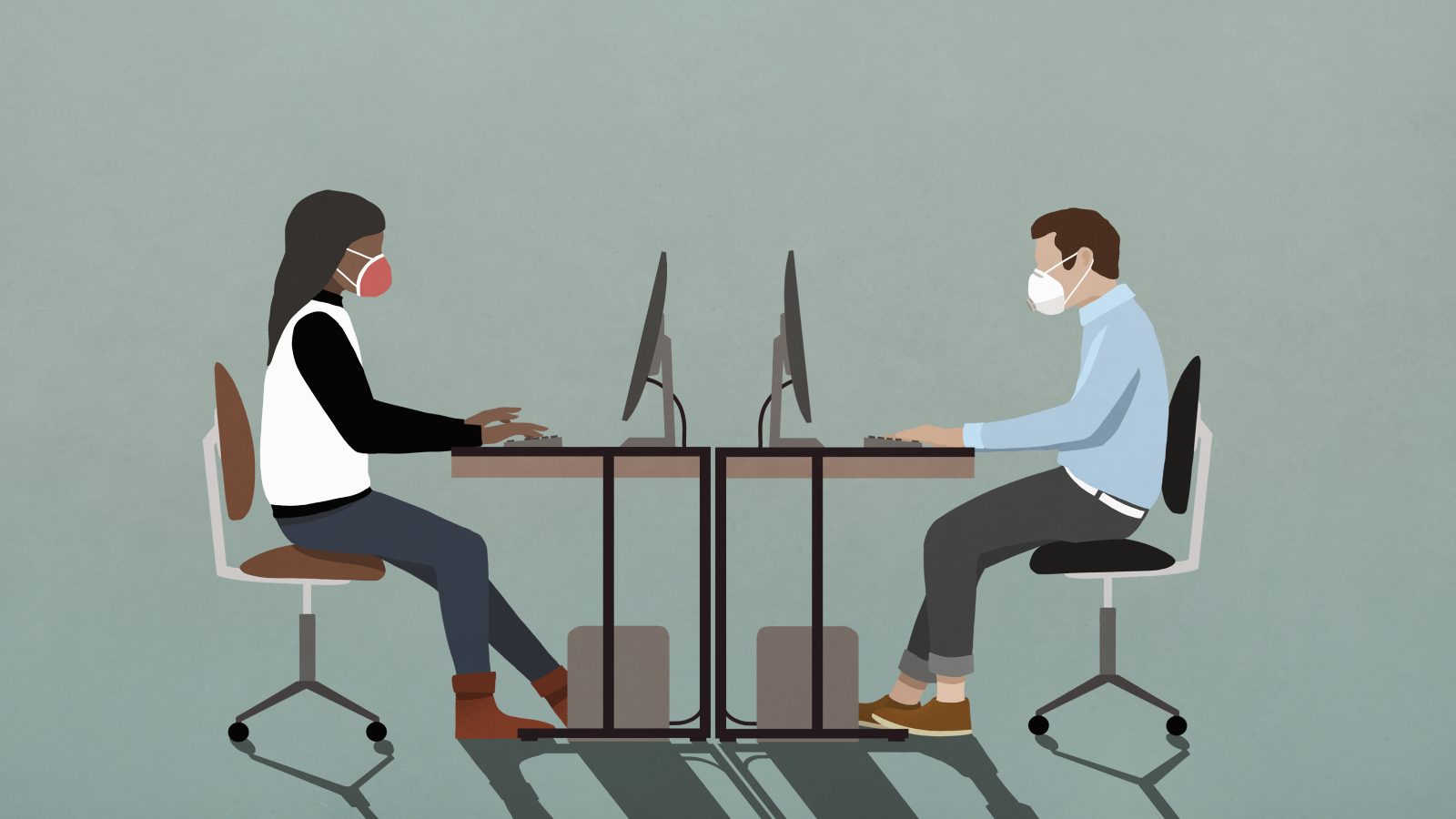Feeling particularly tired in winter? The reasons behind seasonal fatigue and how to combat it
Feeling tired in winter could be down to a number of things—here's how to understand why your energy levels might have dipped


'Tis the season to feel like you're on a permanent treadmill incline and slowly running out of steam. But, if you’re unsure about exactly why you feel so tired in winter, our experts are here to help.
Now, the run-up to Christmas has always been a busy period—full of an abundance of shopping and socializing—but this year's celebrations might feel even more exhausting than usual. Perhaps, on top of festive pressures, you're still processing the pandemic, recovering from one of the many viruses (Covid included) going around, or have felt your energy levels shift as the winter days have drawn in.
But, while a good rest—and perhaps a little help from the best sleep aids—should rejuvenate most, for some this tiredness is lingering. "Fatigue is a symptom of something going on in your body, and there are lots of different things that can cause it,” says therapist Alex Howard, author of book Decode Your Fatigue and founder of the Optimum Health Clinic. Distinguishing just why your energy levels are depleting is a good place to start in the quest for preserving your power this winter.
Why am I so tired in the winter months?

If you feel tired all the time, you're not alone. According to Dr Jeff Foster, an NHS GP, who is also a partner at healthcare platform H3 Health, a considerable 8% of consultations in general practice is for tiredness or fatigue. In winter, feelings of exhaustion intensify, with darker days and colder weather to contend with. For women, there are a variety of factors that can prompt this feeling of general tiredness and more serious fatigue. “The most common reason is lifestyle—like poor sleep and diet, lack of exercise, and work stress,” Dr Foster explains. “This is followed by hormonal reasons—like an underactive thyroid, or the menopause—then mental health, with chronic depression and anxiety causing fatigue, followed by heavy periods and iron deficiency.” Other reasons include chronic medical problems—like poorly controlled diabetes, asthma, inflammatory bowel disease—as well as chronic infections, like chronic chest infections or urinary tract infections contributing towards a dip in energy.
But, in our current climate, there are other factors at play that could be contributing to feeling tired all the time. With stress levels at an all-time high, burnout on the rise, and research from the Mental Health Foundation showing that negative mental health implications will outlast the physical, it's no wonder that we're all feeling exhausted. Other reasons you may be feeling particularly tired in winter include:
Festive burnout
If it feels like you’ve been fitting a year’s worth of plans into the space of a few months, with the prospect of little let-up over Christmas, then it’s no wonder you’re feeling tired in winter. Indeed, a recent survey found that burnout affects over half of professional women—the trigger for which is usually a period of additional stress that can leave you feeling like you have little left to give, with fatigue one of the key symptoms.
But why do so many of us reach this point? “We live in a culture where we celebrate mind over matter, and we will reward people for pushing through their limitations,” explains Howard. “While a certain amount of challenge and stress is positive, because we can cope with that, when that challenge and stress is disproportionate to our resources to meet it, then it can become overwhelming.”
Sign up for the woman&home newsletter
Sign up to our free daily email for the latest royal and entertainment news, interesting opinion, expert advice on styling and beauty trends, and no-nonsense guides to the health and wellness questions you want answered.
He notes that fatigue is ultimately a message from our bodies saying "I’m running out of resources and I’m struggling", adding, "One of the many ways fatigue can become chronic fatigue is the consistent ignoring of those messages. So we go deeper and deeper into that state of exhaustion—the body is asking us to stop but we’re not.”
The pandemic

The pandemic may have been a time when we were able to slow down and do less—but there's a reason why so many of us are feeling wiped out more than usual this winter. We're still recovering from the dramatic changes to our lives that Covid brought, explains Howard. “There are four different types of tiredness—physical, mental, emotional, and environmental,” he reveals. “The average person might not have been commuting to the office every day, creating physical tiredness, but if you had to homeschool children or self-isolate unexpectedly, then that brought the stress of uncertainty, which in turn causes emotional tiredness."
Howard continues, “There’s also mental tiredness—a lot of people have also had their jobs or businesses affected—and environmental tiredness, caused by the repetition and monotony of being stuck at home rather than the transitions and changes of normal life.”
All of which means that after 18 months and successive lockdowns—plus the continued uncertainty brought by the new Omicron variant, as well as numerous Christmas dilemmas to contend with—it’s unsurprising you’re still feeling like you need a month-long break to the Bahamas.
Increased risk of illness
It’s been a winter in which you are likely to have been dodging, or struck down by, many viruses going around—not to mention the anxiety that comes with the increased risk of becoming unwell. In addition to circulating Covid-19, there has also been a return of the flu and a particularly vicious ‘The Cold’. Many doctors have pointed out the similarity in symptoms between them all—including fatigue (which is why it's so important to get a test).
“When you get an infection, your body diverts a lot of energy to the immune system to fight it—this is more than just the mobilizing of white blood cells and antibodies, but also the release of interleukins which raise our temperature, speed up the heart rate, and constrict blood vessels,” explains Dr Foster. “Your body also diverts blood flow, away from activities like moving and thinking, in order to fight infection.” He adds that the brain will make the concept of going out and doing things less pleasant when you are ill, so you stay in and conserve energy—and you may feel more wiped out too if you are eating less due to feeling poorly.
While many people can expect to see this kind of fatigue fade after a couple of weeks, and even be back to their former fitness, some can experience it for much longer. Post-viral fatigue is defined by the NHS as being fatigue that started with a viral infection that continues for a longer period of time after the infection has gone.
Long Covid or chronic fatigue
If your fatigue has lingered for a while, something else may be going on. For example, it is thought that millions of people around the world are currently experiencing long Covid—with some studies showing that women are twice as likely to suffer—which is defined as symptoms lasting longer than 12 weeks. Similarly, the condition myalgic encephalomyelitis/chronic fatigue syndrome (ME/CFS), which affects four times as many women, is usually diagnosed after fatigue has lasted at least six months.
“Through a medical lens, for someone to get a diagnosis for long Covid or ME/ CFS, it’s classified as medically unexplained,” says Howard. “You’ve got someone who has symptoms that are clear and real and legitimate, but mainstream medicine is unable to explain why they're happening.”
While scientists are not yet clear on exactly what causes either long Covid, which first came to light in spring 2020, or ME/ CFS, which was first identified in the 1950s—and both are likely to have complex triggers—what is clear is that ignoring your body’s early warning signs of fatigue certainly won’t help. “Of course, we all have to deal with life and get done what we need to get done," notes Howard. “But if you’re constantly ignoring the repetitive message of fatigue, that can only be ignored for so long before the body has to shout louder. It’s like driving a car where the fuel light comes on, and you ignore it and keep pushing—at some point it’s going to run out.”
Mental health issues
Few of us enjoy colder weather with earlier sunsets, but for some people, it can have a serious effect on their wellbeing. Seasonal Affective Disorder symptoms (SAD) affect 10 million Americans, while three in 100 people in the UK experience it—with women four times as likely to be impacted. Tiredness or low energy is one of the key symptoms, along with low mood and problems sleeping, such as insomnia, according to the Mayo Clinic. Additionally, for those experiencing depression—which affects millions of people globally—fatigue can also be a key symptom.
However, Howard notes that it is important to acknowledge that those suffering from long Covid or ME/CFS are experiencing something very different from depression. “On the surface, they can look very similar—but they feel quite different, and the path to recovery is different,” he explains. “With fatigue, you want to do things, but you haven’t got the energy to do them. The will is there, but the capacity to act on that will isn’t there. But what tends to be more the case with depression is the will isn’t often there.”
Howard explains, “For someone suffering from depression, research shows that regular exercise will significantly benefit you in terms of improving your mood." If that's perhaps you, here's how to garner a little workout motivation. "But if someone has chronic fatigue, the evidence shows that doing exercise can often make them feel worse, not better," he warns. "The differentiation is so important—you can’t address them both in the same way.” It's important to reach out to your doctor if you are concerned about your mental health, or could be suffering from a health condition such as long Covid or chronic fatigue.
Feeling tired all the time and fatigue—key differences
While tiredness and fatigue are terms often used interchangeably, they’re separate issues and the main difference is recovery time.
- Tiredness—tiredness can, for the most part, be cured by better sleep and some time to recharge. “The former is where we know why a person is tired—where they've perhaps spent a busy week burning the candle at both ends. They’ll then rest and get some sleep, and feel better,” explains Howard.
- Fatigue—more serious fatigue will unlikely be resolved until an underlying issue is addressed. “The latter is beyond this—where someone can rest, but not see their energy bounce back.” Howard adds, “What's more, tiredness at the end of a long week has emotionally positive connotations for someone—that they’ve achieved something, and feel good about their efforts. But with fatigue, feeling exhausted for no apparent reason will come with a lot of frustration and anxiety.” What’s more, even those with fatigue can have very different experiences. “It’s a continuum—at one end someone might be able to live a busy life, but not really have the energy that perhaps they are used to,” explains Howard. “But then you have others who are more severe, who may be housebound or bed-bound.”
What to do if you’re feeling tired all the time?
When it comes to tiredness, the cure can often lie within our everyday habits, but it's about a lot more than just good sleep hygiene. However, it's important to stress that if you suspect your ongoing tiredness is a part of a wider issue, seek the advice of a medical professional.
Keep stress levels in check
We cannot emphasize this enough! Address chronic stress. “Our nervous systems are designed to handle short-term stress—we get hits of adrenaline and cortisol as part of the body's fight, flight, or freeze response that stems from caveman times,” warns Howard. “The problem is that when that acute stress becomes chronic stress—when we become normalized to being in this state, as part of our lifestyle—there’s eventually going to be a significant price that has to be paid."
He notes, "Responding to the messages from our bodies to rest is really important, and calming your nervous system will help you recover. Doing meditation and mindfulness is a great starting point." Learning how to breathe better and breathing techniques for anxiety, like the Wim Hof breathing technique can really help.
Fuel your body with the right nutrients

“Get the right nutrition,” says Howard. “We make energy from the food that we eat. So consume nourishing fuel, not junk.” Dr Foster recommends people eat more protein to boost overall health. Sources can include lean meat, poultry, fish, eggs, and dairy products, as well as protein-rich alternatives to meat, such as chia seeds, lentils, and tofu. These ancient grains are great to fill up on too.
“A daily dose of vitamin D can also help ward off fatigue,” he adds. In the UK and US, during autumn and winter when people are most at risk of a nutrient deficiency when it comes to Vitamin D, it is recommended that people take a supplement of at least 10 micrograms (400 international units) a day.
Seek medical help
Dr Foster says it can be really helpful to rule a few things out first before making a GP appointment. “Look at your day-to-day living—is your diet healthy, varied, and including regular meals,” he suggests. “Are you doing enough exercise and getting six to eight hours of sleep a night? How much alcohol are you consuming?" We have a guide to figuring out if you have a drinking problem if you do have concerns.
“Go to your doctor when your fatigue is disproportionate to your lifestyle,” suggests Howard. “So, if someone is working 80 hours a week while trying to go to the gym every morning and maintain an active social life, they should probably slow down a bit. Or, if someone has a new baby and is getting very little sleep and they are exhausted, again that is not medically unexplained—that’s a normal human response to the great pressure that’s being put on their system.”
He continues, “When it's really important to have a full medical investigation, is when your fatigue is not explained by your lifestyle. And when you take rest, your body is not naturally recovering in the way you would expect.”
w&h thanks therapist Alex Howard, the founder of the Optimum Health Clinic and author of book Decode Your Fatigue, and Dr Jeff Foster, a GP working within the NHS who is a partner at healthcare platform H3 Health, for their time and expertise.

Lauren is a freelance writer and editor with a decade of print and digital journalism experience. While she specialises in covering health and wellness topics - ranging from nutrition and fitness, to women’s health conditions and mental wellbeing - she has written across a diverse range of lifestyle topics, including fashion, beauty, interiors and travel.
In addition to writing for Woman & Home and sister title Homes & Gardens, Lauren's work has also been published by Women’s Health, The Times, Daily Telegraph, Elle, Cosmopolitan, The Guardian, Marie Claire, Body + Soul, Stylist, Glamour, Grazia, Red, Dazed Digital, Yahoo Life, The Sun’s Fabulous, Get The Gloss and Hello! among others.
-
 We never thought we'd see this 'dated' manicure make a chic comeback, but here it is - and we're on board
We never thought we'd see this 'dated' manicure make a chic comeback, but here it is - and we're on boardClean and angular, short square French tips are a go-to this season for a practical but stylish manicure...
By Naomi Jamieson Published
-
 Where was Black Snow season 2 filmed and is it based on a true story?
Where was Black Snow season 2 filmed and is it based on a true story?Black Snow season 2 has landed on BBC iPlayer and the picturesque scenery is a stark contrast against the drama's chilling events.
By Emma Shacklock Published